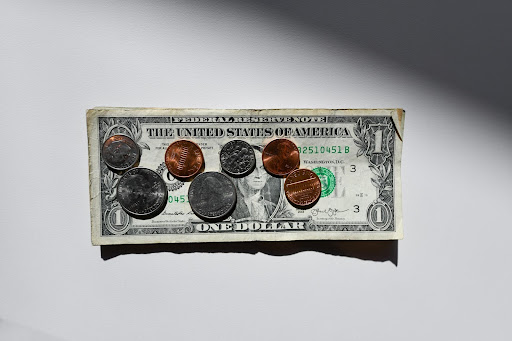CONSUMER ADVISORY FROM THE MARYLAND COMMISSIONER OF FINANCIAL REGULATION:
“lenders and servicers are prohibited from collecting fees on any form of loan payment (so-called “convenience fees”) if the fees are not specifically contained in your loan documents.”
In recent years, junk fees have added a new challenge to consumers trying to stay on top of their spending and personal finance goals, but what are junk fees? Read on to learn more about junk fees and how to defend against them.

What are Junk Fees?
When you shop, pay your bills or pay for a service, the price can be higher than what is listed. These extra hidden fees you pay are called junk fees. Junk fees are used by all types of companies across all markets, from ticket sellers to rental agreements; they are ever-increasing and prey on consumers.
“Junk fee” is the generic term to describe these hidden costs, and these fees typically disguise themselves under different titles. Usually called “service fees” or “convenience fees,” many consumers don’t realize they’ve incurred extra expenses until they receive the final bill. Some of the most common ways you will see these extra payments are resort fees for hotels, closing costs for a house, parking fees, and more.
Examples of junk fees:
- Convenience Fees
These are added to billing statements for services, loans, or even rent. A charge may be added to the original balance for no legitimate reason – unless there is language outlining these fees in a binding agreement with the consumer, they are fraudulent charges.
- Credit Card Service Fees
Usually, when paying with a credit card, there will be extra costs for transactions, late fees, or annual fees. In 2020, $20.8 billion was paid in junk fees by credit card holders, and credit card companies are savvy enough to bury these fees in contractual agreements.
- Prepaid Card Service Fees
For people without bank accounts, prepaid cards are a common option for paying bills and accessing funds. Some financial companies add fees for inactivity, ATM use, or transactions on these cards.
The CFPB Investigating Junk Fees
The Consumer Financial Protection Bureau (CFPB) is collecting data on junk fees from financial providers and services. They are investigating these fees in use today and their impact on consumers.
The CFPB is gathering data on:
- Fees associated with financial institutions
- Fees hidden from the upfront cost of services
- Companies and markets profiting the most from junk fees
- Evidence of consumer misunderstandings of fee structures
- Evidence of financial decisions based on hidden and upfront fees
The CFPB has taken action against junk fees before; in 2015, the CFPB enacted a rule stating that no fee can be inflated more than 10% from the lending estimate to the final closing statement when consumers are closing on a property.
What Can Be Done?
At the beginning of the summer of 2022, the Maryland Commissioner of Financial Regulation issued a consumer advisory notice regarding a ruling from the U.S. Court of Appeals for the Fourth Circuit.
In the notice, the Commissioner states that the court ruling determined:
“lenders and servicers are prohibited from collecting fees on any form of loan payment (so-called “convenience fees”) if the fees are not specifically contained in your loan documents.”
What does this mean? For consumer-borrowers, any fee (regardless of the moniker) charged by a lender or service provider not authorized by the contract or by a statute or rule may violate Maryland law.
Have You Been Subjected to Fraudulent Fees?
If you believe you are a victim of junk fee violations by a service provider, landlord, or lender, please contact our consumer protection lawyers for a consultation.
Don’t let fraudulent fees take what you’ve earned.



